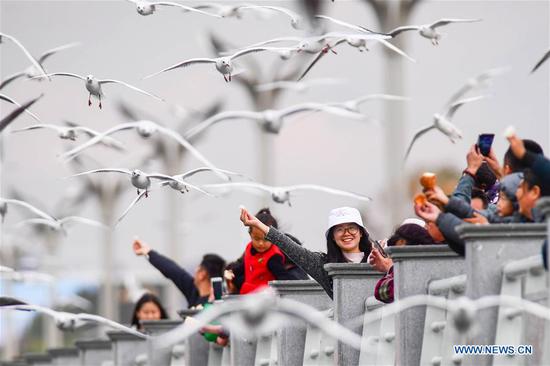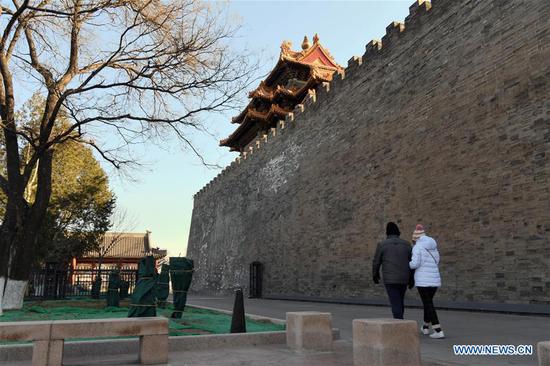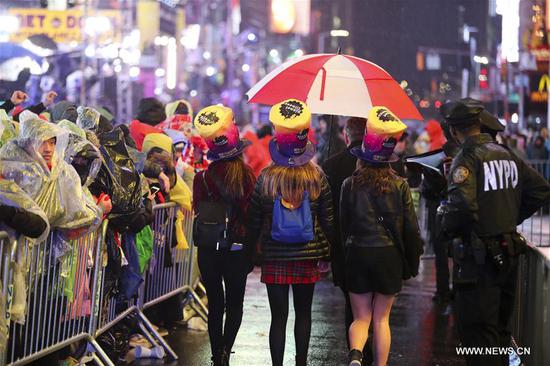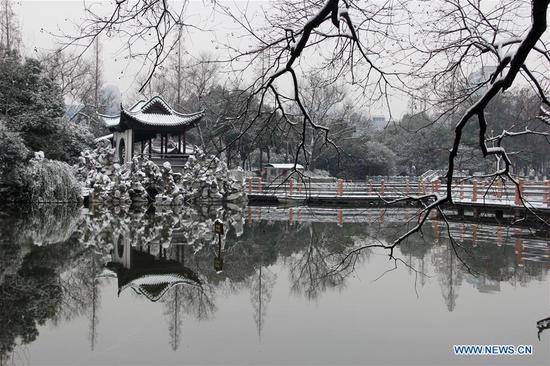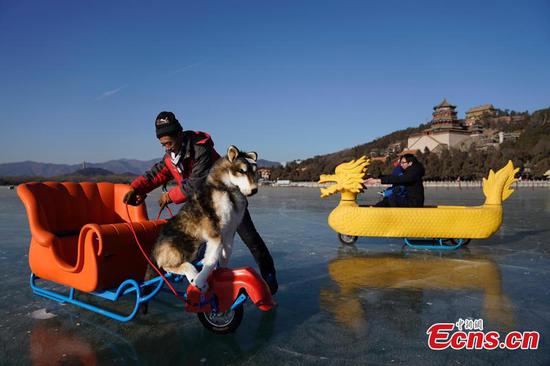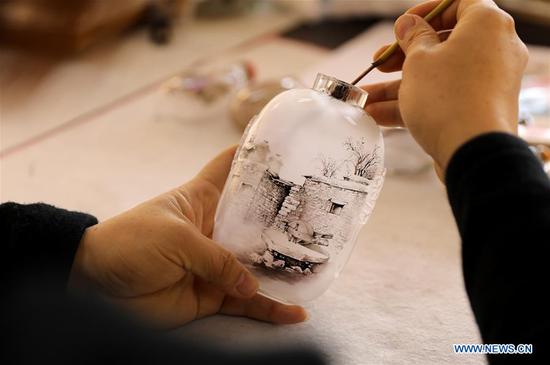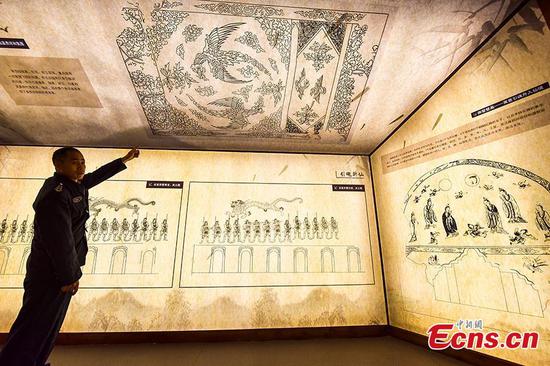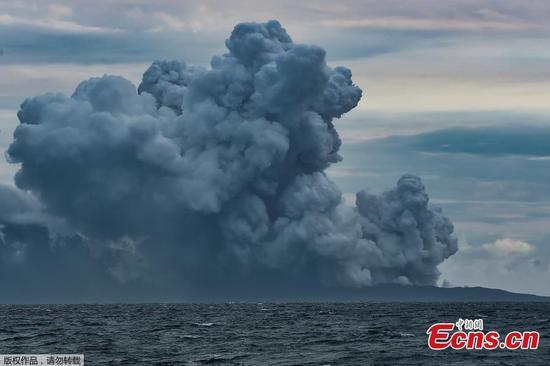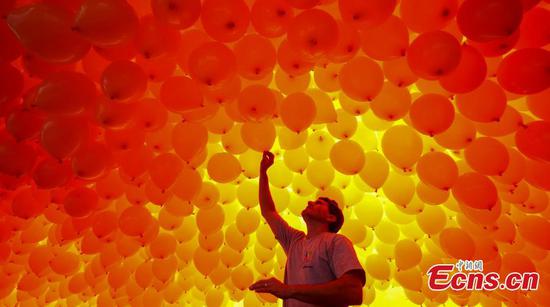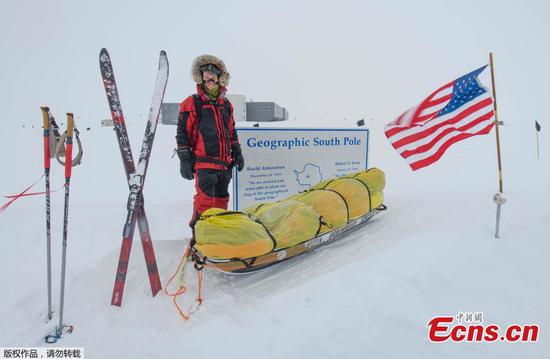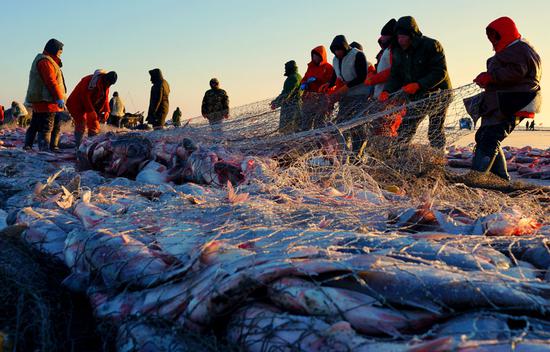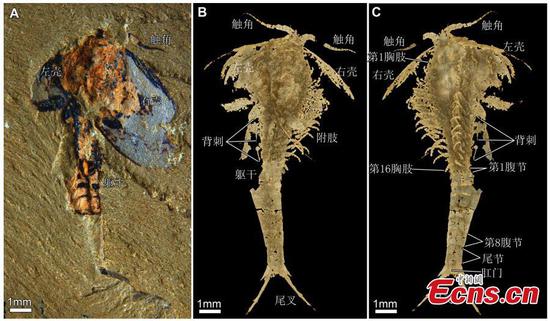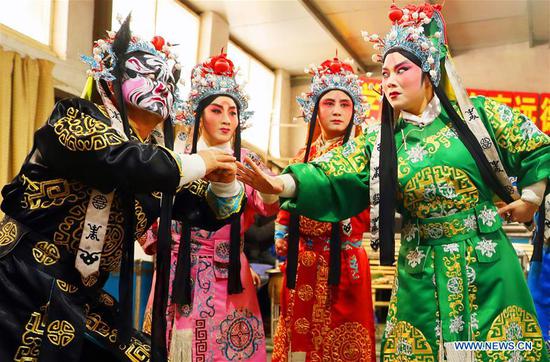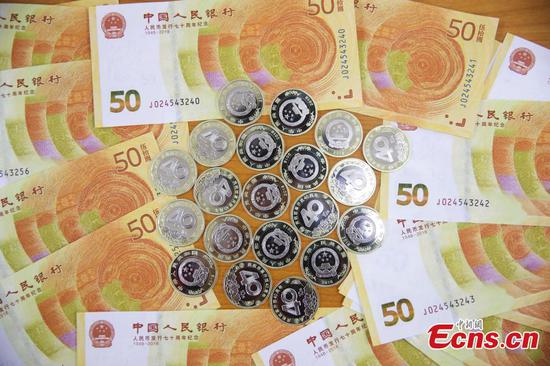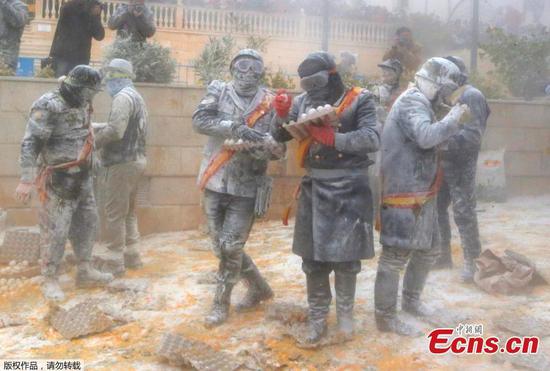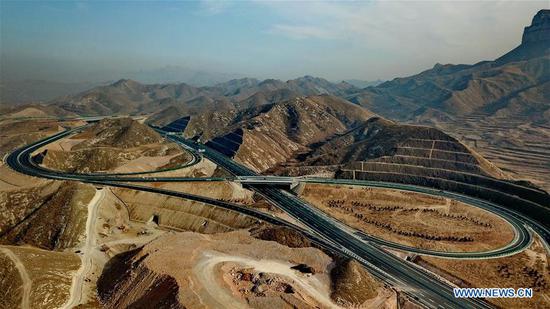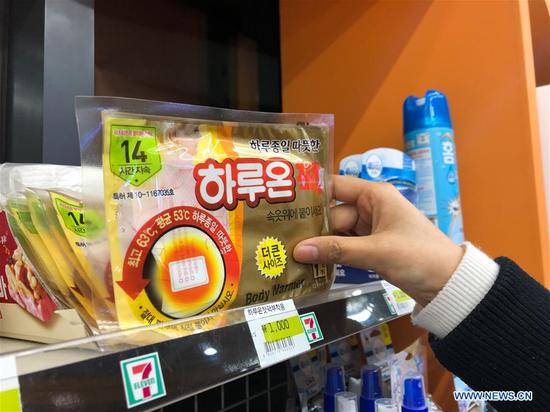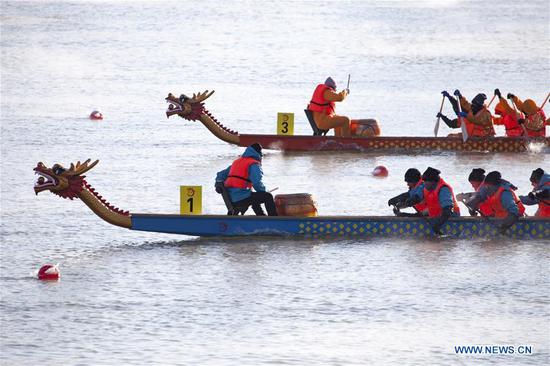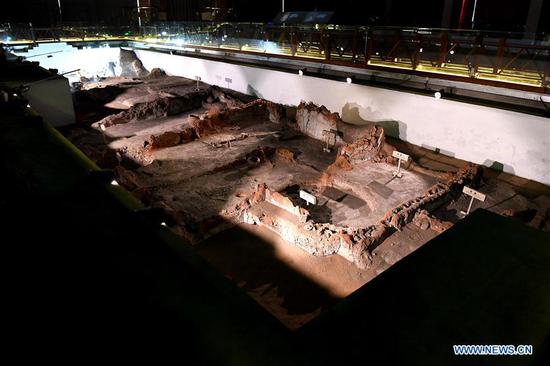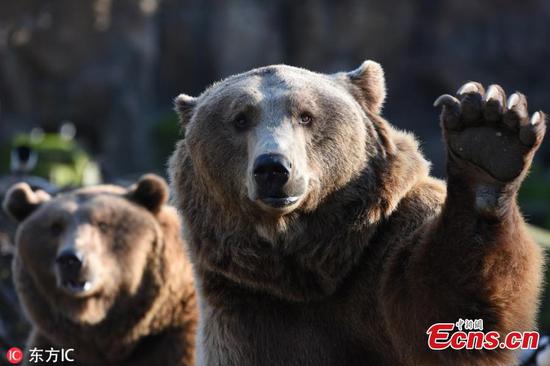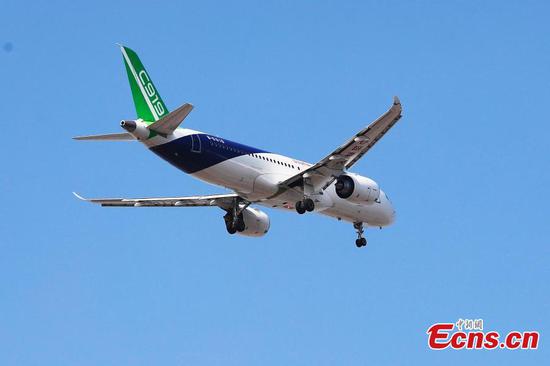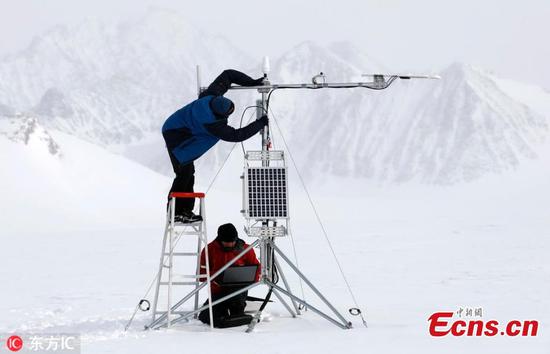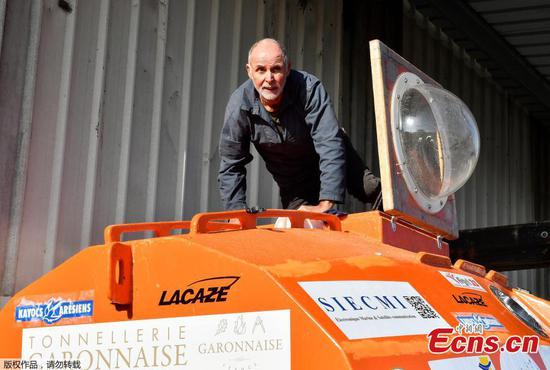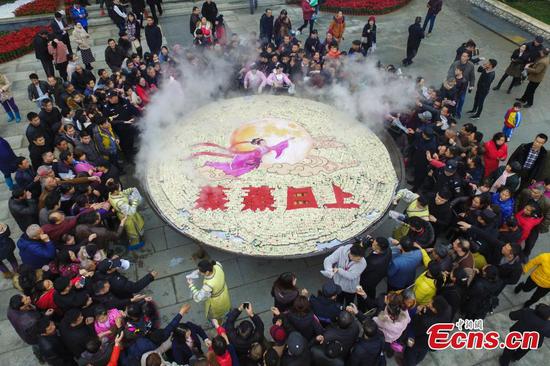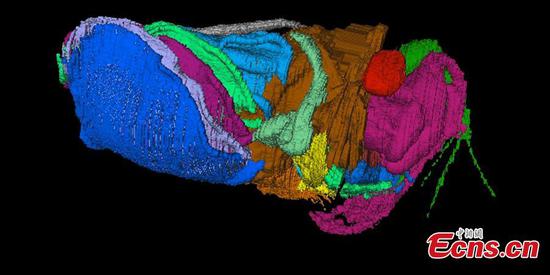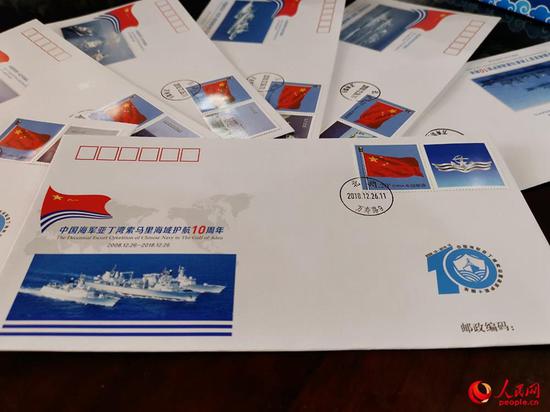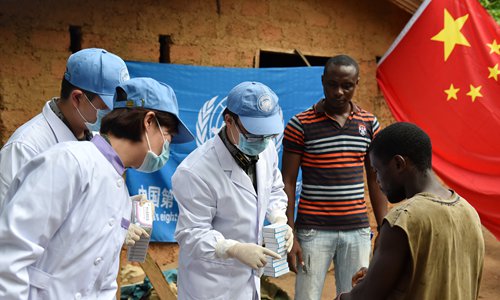
A Chinese team distributes medicine to local residents in Liberia in November 2015. Photo: Xinhua
"Loneliness and illness were the biggest challenges for me when I worked as a medical aid worker in a foreign country," recalled Miao Yuankui, 50, a Chinese doctor and a member of the Chinese medical team to Togo.
Miao, who now works in Shanghai, stayed in Lomé, the capital of Togo in West Africa, to provide medical treatment for gynecological diseases along with a Chinese medical team from 2007 to 2009.
"I was infected with malaria within a week after arriving in the African country, and felt helpless and homesick when the pain conquered my body. But after overcoming all these difficulties, my journey in the country was exciting," he said.
According to statistics from the Xinhua News Agency, China has sent over 26,000 medical workers since 1963 to 71 countries around the world and some 200 million African people have benefited from the medical service of Chinese teams in Africa.
A commendation conference was held by China's National Health Commission at the Great Hall of the People in Beijing on December 17, in order to commend outstanding Chinese medical teams and individuals who provided overseas medical aid.
Becoming ill with malaria is not the only dangerous situation Miao met during his stay in Togo.
"I once had an operation on an AIDS patient. I was concentrating on the surgery and did not notice that there was a hole in my medical glove, and my finger was cut by a suture," Miao said.
Miao said he was incredibly calm at that time, "I realized this was a most dangerous situation, but I decided to continue with the operation rather than having a physical examination."
He had an examination after finishing operations for the day and a few days later, he received the report.
"Before opening my report, I felt like a warrior who is about to go to the frontline or like a criminal waiting for my sentence in the court," he said, calling it a "very solemn and stirring moment."
The result was negative. Miao's entire burden vanished in a flash.
Busy is a shared condition for all the Chinese medical teams working overseas.
"Accidents happened quite often," said Qiao Rui, a doctor at the Second People's Hospital of Jinzhong in North China's Shanxi Province, who worked in Djibouti for a Chinese medical team from September 2015 to October 2017.
Consisting of 14 doctors and one translator, Qiao's team was assigned to two different medical centers.
Qiao told the Global Times that he once received a patient who was shot by a local soldier when doing business at the border.
"Bullet wounds are rare while working in China. My patient bled too much when he was sent to the hospital. We conducted emergency surgery and finally his life was saved from the brink," Qiao said.
Reluctant to leave
Aside from dangerous situations and busy work, the Chinese medical teams in African countries also experienced more surprising and exciting moments, which made them reluctant to leave.
Qiao's team was invited to attend a military parade on Djiboutian Independence Day on June 27, 2017. This was to mark the 40th anniversary of Djibouti gaining independence from France.
"When I sat on the reviewing stand, I was excited beyond imagination," Qiao said, trying to describe his feelings.
"I, as a member of the Chinese medical team, represent my motherland and was respected by a foreign country. The moment has made the two years of hard work worth it," Qiao said.
Working overseas also gave these doctors a chance to improve themselves.
Miao noted that he read a lot of professional books about gynecology and emergency surgery in Togo. "It is an appropriate chance to improve my vocational skills so no situation would disturb me there and I could focus more on work," he said.
In Togo, Qiao chose to relax after dinner with his colleagues, and sometimes talked with local people along the way about his home, child and China. "I learned French from them but have already forgotten most of it."
Miao and Qiao said that the medical teams had sports equipment, which allowed them to play table tennis or badminton. They also had entertainment rooms in which they could sing and dance.









